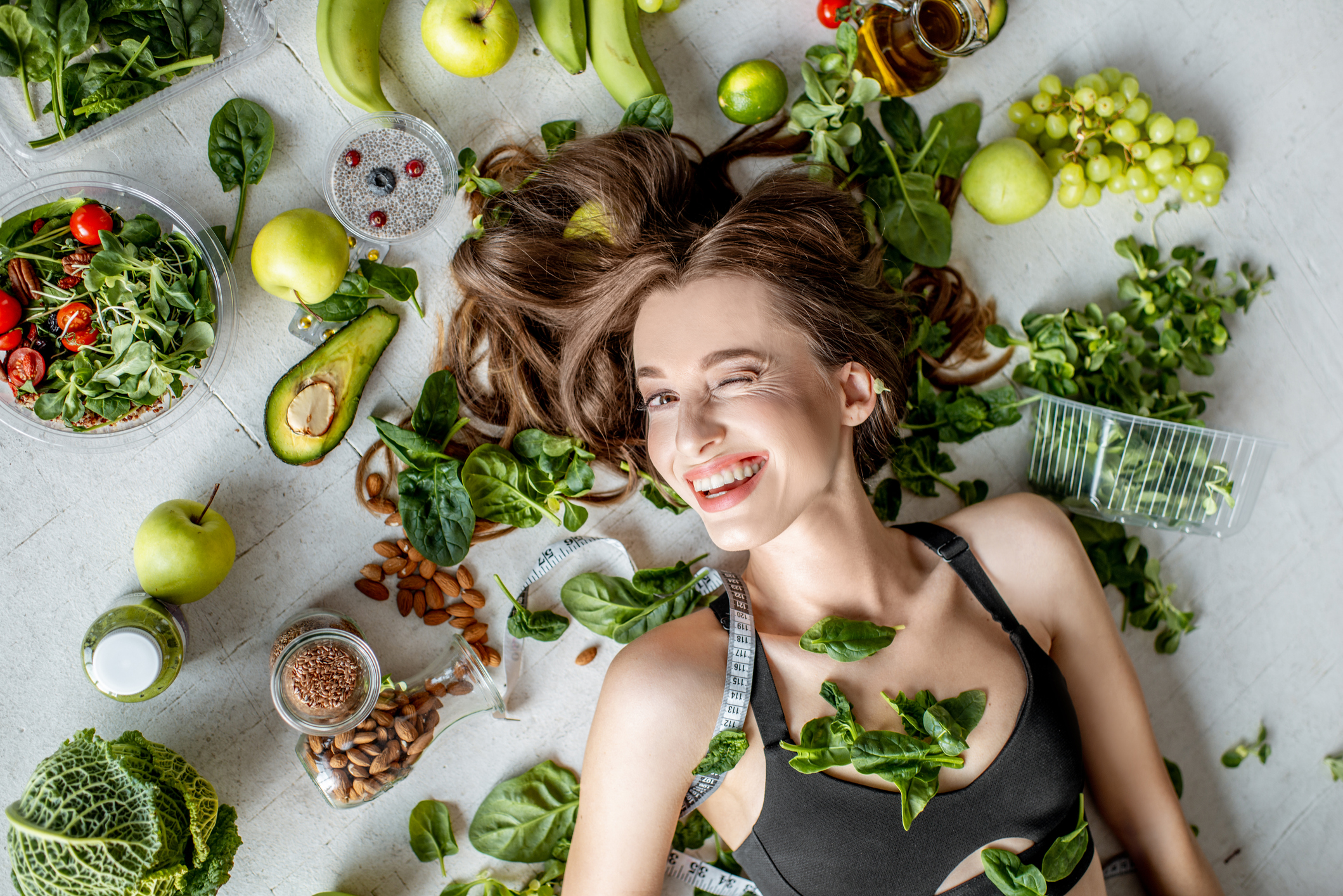Get Easy Health Digest™ in your inbox and don’t miss a thing when you subscribe today. Plus, get the free bonus report, Mother Nature’s Tips, Tricks and Remedies for Cholesterol, Blood Pressure & Blood Sugar as my way of saying welcome to the community!
Want to be less stressed? Eat your fruits and veggies

We live in stressful times. The COVID-19 pandemic has upended our lives, and the changes it’s wrought can be frustrating and exhausting. Plus, we’re constantly being barraged with bad news thanks to our ever-present mobile devices.
Staying healthy by eating right and exercising can definitely help with managing stress. In fact, when it comes to lowering stress, new research is confirming the wisdom of your mother’s command to eat your veggies…
The link between fruit and vegetable consumption and stress
New research from Edith Cowan University (ECU) in Australia has found that having plenty of fruits and vegetables in your diet can help reduce stress.
Researchers looked at the connection between fruit and vegetable consumption and stress levels in more than 8,600 Australians between the ages of 25 and 91 participating in a larger study of diabetes, obesity and lifestyle.
Results of the ECU study showed people who ate at least 470 grams of fruits and vegetables every day had 10 percent lower stress levels than those who consumed less than 230 grams. The World Health Organization’s daily recommendation for fruit and vegetable intake is at least 400 grams.
Lead researcher and Ph.D. candidate Simone Radavelli-Bagatini from ECU’s Institute for Nutrition Research observes that while it’s normal for people to feel some stress from time to time, long-term exposure can really hurt both physical and mental health.
“Long-term and unmanaged stress can lead to a range of health problems including heart disease, diabetes, depression and anxiety, so we need to find ways to prevent and possibly alleviate mental health problems in the future,” Radavelli-Bagatini says.
Despite the well-known benefits of a healthy diet, only one in two Australians eat the recommended two servings of fruit each day, and fewer than 1 in 10 eat the recommended daily five servings of vegetables. In the U.S., it’s estimated only 1 in 10 adults meet the federally recommended daily intake of 1 1/2 to 2 cups per day of fruits and 2 to 3 cups per day of vegetables.
Researchers say the ECU study reinforces the link between a healthy diet and good mental well-being no matter how old you are.
“Previous studies have shown the link between fruit and vegetable consumption and stress in younger adults, but this is the first time we’re seeing similar results across adults of all ages,” Radavelli-Bagatini says.
“Vegetables and fruits contain important nutrients such as vitamins, minerals, flavonoids and carotenoids that can reduce inflammation and oxidative stress, and therefore improve mental well-being. Inflammation and oxidative stress in the body are recognized factors that can lead to increased stress, anxiety and lower mood.”
Further research could focus on which fruits and vegetables specifically provide the greatest mental health benefits.
The best fruits and vegetables to ease stress
You don’t necessarily have to go completely vegan to lower your stress levels. In an earlier issue, we talked about the potential stress-busting effects of the Mediterranean diet, which focuses heavily on plant-based foods, healthy fats and modest amounts of fish and poultry.
As far as specific fruits and vegetables for fighting stress, try adding those that are high in antioxidants like vitamin C, which studies have shown can help ease worried, anxious feelings. Good sources of vitamin C include strawberries, spinach and citrus fruits. Spinach also contains folate, which helps produce the calming brain chemical dopamine.
Blueberries and other berries contain antioxidants and phytonutrients that help support your body’s stress response, as well as strengthen your immune system. The omega-3 fatty acids in avocados are also great for reducing stress and boosting mood. And make sure you’re eating plenty of green vegetables like kale and broccoli, which are high in inflammation-fighting fiber.
Editor’s note: Did you know that when you take your body from acid to alkaline you can boost your energy, lose weight, soothe digestion, avoid illness and achieve wellness? Click here to discover The Alkaline Secret to Ultimate Vitality and revive your life today!
Sources:
Eating more fruit and vegetables linked to less stress – study — Edith Cowan University
Only 1 in 10 Adults Get Enough Fruits or Vegetables — Centers for Disease Control and Prevention
The 10 Best Foods to Help Fight Stress — Everyday Health
Spinach 101: Nutrition Facts and Health Benefits — Healthline
20 Stress Relieving Foods to Try if You’re Feeling Anxious — Health













